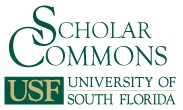Keywords
quantitative; measurement; rhetoric; negotiation; humanities; persuasion
Abstract
If quantitative reasoning is to be a legitimate part of composition curricula, it must be seen as a valuable tool for composition instructors to use in exploring their own subject. Composition instructors must see the relevance of QR not merely to their students in other subject areas but also directly in their literary and rhetorical studies and careers. Here we reflect on a highly successful program of using quantitative techniques in teaching advanced levels of professional rhetoric, namely persuasive speech and writing. We recount our 15-year experience of running an in-class, empirical and progressive experiment in group negotiations, the Legislative Simulation (LS). The LS provided statistically significant results, some eye-opening, reported in various publications, but here our reflections concern what such an experiment tells us about opportunities and challenges of using quantitative techniques for the improvement of teaching rhetoric in and for itself. It is clear from our experience that QR takes on a somewhat different appearance within the humanities requiring adjustments in pedagogy and expectations. None of the challenges, however, are insuperable, and the rewards for the discipline as well as for a quantitatively competent university are very great.
DOI
http://dx.doi.org/10.5038/1936-4660.7.1.5
Recommended Citation
Grawe, Paul H., and Robin J. Grawe. "Reflections on the Introduction of Quantitative Assessment in Persuasive Writing Classes." Numeracy 7, Iss. 1 (2014): Article 5. DOI: http://dx.doi.org/10.5038/1936-4660.7.1.5
Creative Commons License

This work is licensed under a Creative Commons Attribution-Noncommercial 4.0 License

